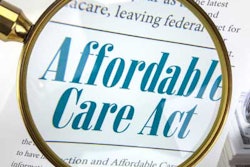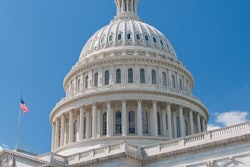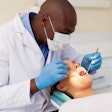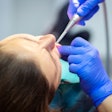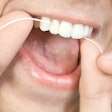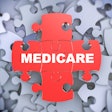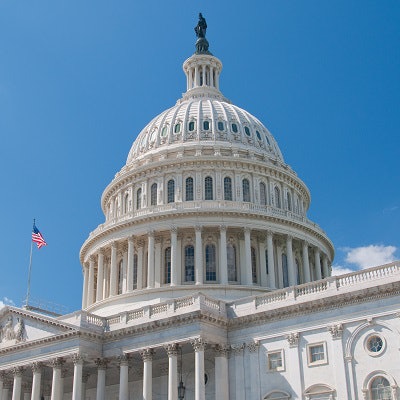
On May 4, the U.S. House of Representatives narrowly passed a bill, known as the American Health Care Act (AHCA), designed to reshape healthcare in the U.S. Some of the bill's provisions may directly affect your practice and your patients.
The bill is an attempt to repeal and replace the Patient Protection and Affordable Care Act (ACA), also known as "Obamacare." In its current form, the AHCA rolls back the ACA's Medicaid expansion, changes the way essential health benefits work, and limits price protections for older Americans and those with pre-existing conditions.
The Congressional Budget Office (CBO) has not reviewed the version of the bill that passed in the House last week. However, the office estimated that a previous version of the bill would reduce the federal deficit by $337 billion over 10 years, but also leave an estimated 52 million people without insurance, compared with 28 million under the current healthcare law.
But what could those numbers mean for your patients and your practice? Below are six ways that the new healthcare bill would affect dentistry.
1. Potential cuts to adult dental benefits
The AHCA would change how state Medicaid programs are financed, shifting away from a federal government match to a system with a per capita allotment. Oral health organizations and experts are concerned that these proposed caps will reduce states' funding for Medicaid programs, resulting in fewer provided benefits, including adult dental coverage.
"Our concern is also that the AHCA effectively ends Medicaid expansion and, with it, the dental benefits provided to most working age adults," Beth Truett, president and CEO of Oral Health America, said in an email to DrBicuspid.com.
 Nadereh Pourat, PhD, director of research, UCLA Center for Health Policy Research.
Nadereh Pourat, PhD, director of research, UCLA Center for Health Policy Research.Under the ACA, some states, including California, expanded Medicaid to cover dental care for adults. Although many adults enrolled in dental Medicaid programs face problems accessing care, coverage is still correlated with a higher number of dental visits.
In California's case, 3 million more people gained access to Medicaid dental coverage, according to Nadereh Pourat, PhD, director of research at the University of California, Los Angeles (UCLA) Center for Health Policy Research. Legislators need to realize that potential cuts to adult dental Medicaid will negatively affect providers who serve that population, she said.
"Many dentists do not accept Medicaid to start with, so it is important that providers who do have adequate capacity," she added. "With fewer insured patients, this capacity is likely to decline, since these providers would have to reduce clinicians and staff."
2. Changes to pediatric dental coverage
Under the ACA, pediatric dental care is included in the essential health benefits that states must offer on the insurance exchanges. However, the AHCA would allow states to choose their own essential health benefits beginning in 2020.
Some experts are worried states may choose to not offer pediatric dental care, halting the overall improvement children's oral health has seen since the ACA was implemented. There is also concern that fewer children will be eligible for Medicaid dental benefits, or funding cuts may limit access to dental providers for children.
3. Limited protections for pre-existing conditions
 Helene Bednarsh, RDH, MPH, director of HIV Dental Program, Boston Public Health Commission.
Helene Bednarsh, RDH, MPH, director of HIV Dental Program, Boston Public Health Commission.The AHCA would limit protections for those with pre-existing conditions. Although states and insurers wouldn't be able to deny someone coverage for having a pre-existing condition, they will be able to charge that person more, perhaps substantially more, if they fail to maintain continuous coverage.
The bill allocates some funding to help subsidize those in these "high-risk pools," but some experts say the funding won't be enough.
"Analysts are saying [the subsidies] are far too low ... and that could affect a lot of individuals," said Helene Bednarsh, RDH, MPH, director of the HIV Dental Program at the Boston Public Health Commission. "From a dental standpoint, that might affect anyone who ever had cancer. With the rise of oral cancer relative to HPV, that's one pre-existing condition that can definitely impact dentistry."
Bednarsh also pointed out that patients with pre-existing systemic diseases, including diabetes and cardiovascular disease, who can't get medical care will probably present to dentists with worse oral health.
4. Premiums associated with age
The AHCA also limits protections for older adults and seniors, who already struggle to access affordable oral healthcare. The Congressional Budget Office analysis noted that insurers would be allowed to charge older adults five times more than young adults, and, while the premiums for young adults would be significantly reduced beginning in 2020, the premiums for older adults would be significantly raised.
Dentists probably won't notice a difference for those younger than age 26 who stay on a parent's dental plan, Bednarsh said, but older adults may not have the ability to afford dental care if they are paying higher premiums for medical care.
5. Prohibitive tax credits
The AHCA would provide refundable tax credits to help low- and middle-income Americans afford health insurance premiums. However, the refundable premium tax credits wouldn't apply to standalone dental plans.
"Those without coverage would have to assess if they can afford to pay for the dental coverage. When this is a question between paying for rent or food, dental care would not be a priority," Dr. Pourat said. "Dentists ... have to consider whether they should offer care for reduced fees to keep uninsured patients, since these patients are unlikely to afford the full fees."
It is important to note that standalone adult dental benefits don't qualify for tax credits under the ACA. In addition, the IRS waited until 2016 to issue a regulation closing a loophole that prevented some families from using tax credits to buy standalone pediatric dental plans.
6. Expanded use of FSAs and HSAs
The AHCA expands the use of health savings accounts (HSA) and flexible spending accounts (FSA), which allow people to set aside money, tax-free, for healthcare costs, including dental care. It also delays the implementation of a "Cadillac tax" that would place a 40% excise tax on high-cost, employer-sponsored health plans. It is believed the tax would negatively affect FSAs.
Several dental organizations, including the ADA and the American Association of Endodontists, support the expanded use of these accounts, since many people use them to pay for dental care. Both organizations also oppose the Cadillac tax.
An uncertain future
“I have no confidence that the Senate bill or even a compromise bill between both houses will serve the public any better than the ACA.”
Most experts and organizations agree on two things:
- The ACA has significant problems.
- The AHCA, at least in its current form, is not an adequate solution.
Provisions of the AHCA will likely change drastically in the U.S. Senate. However, the bill focuses on repealing many ACA policies to return healthcare to the way things were before, a move experts agree is not the right strategy.
"The bill is designed to cut back federal subsidies and allow insurers to go back to their past practices that led to millions who could not buy insurance, even if they could afford it," Dr. Pourat said. "I have no confidence that the Senate bill or even a compromise bill between both houses will serve the public any better than the ACA."
In its report on the AHCA, the CBO committee reached a similar conclusion.
"For these and numerous other reasons, the ACA, or Obamacare, must be repealed. Yet a return to the status quo ante is not acceptable either," the committee wrote. "Repealing Obamacare merely begins the process of establishing truly patient-centered care in America."





